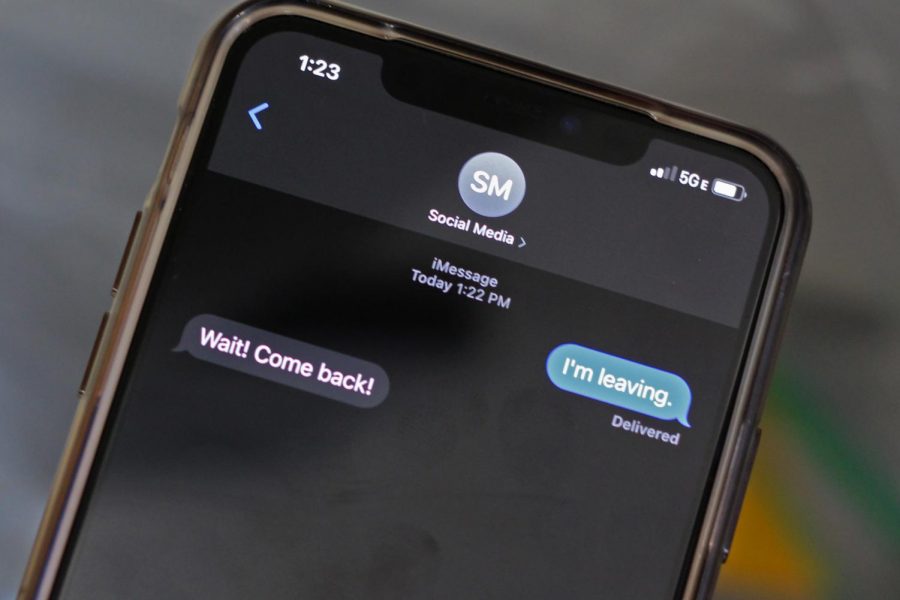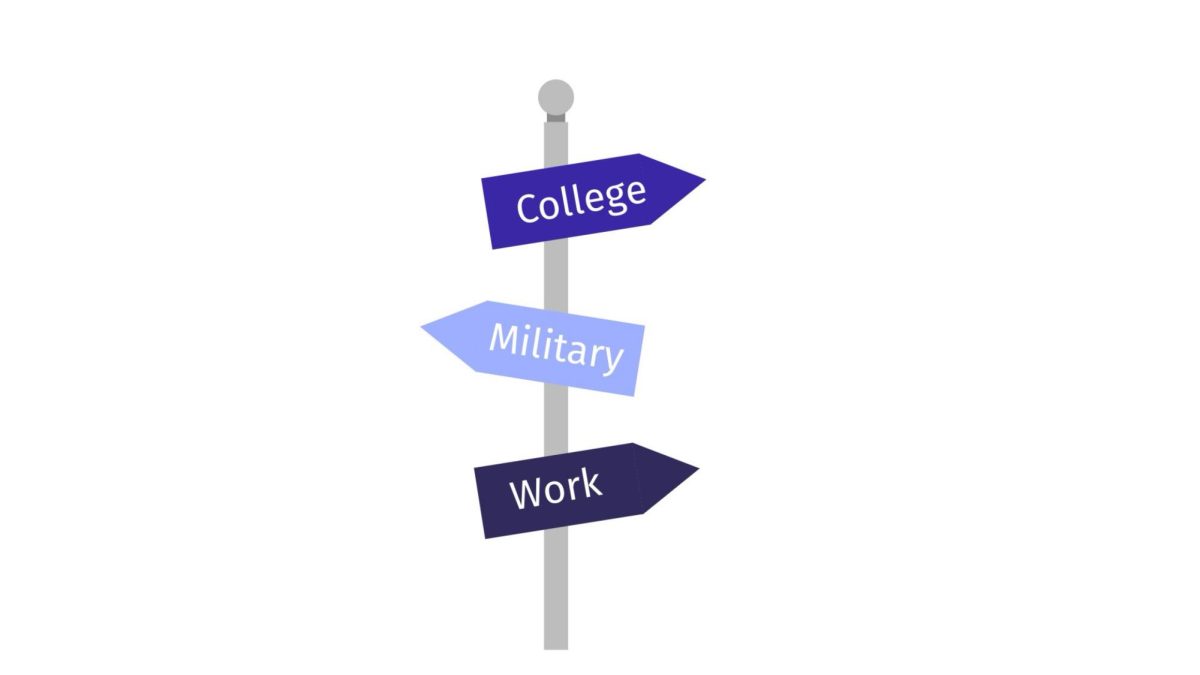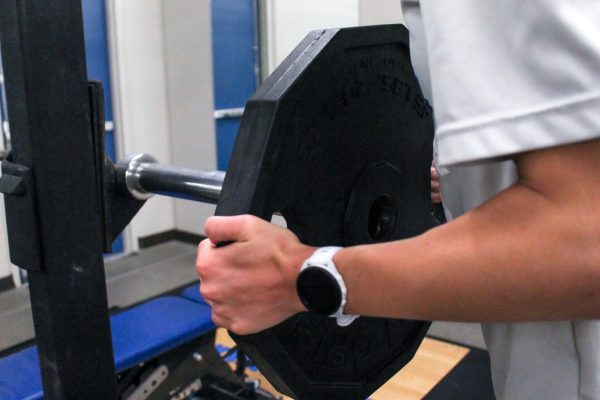Social Distancing, But Make It Digital
After deleting all social media off his phone, Tyler Burkett explains his experience doing without.
November 12, 2020
Social media is a parasite. Not in the physical sense where it hops out of your phone sucking the life out of you. No, it can’t do that. But in a much more real sense, it sucks time away from you so that before you know it, you’re standing in the pantry wondering where the past 20 minutes went and you look down at your phone to see a video of a cat riding a unicycle that’s been on a loop.
A study of 5,000 people found that “higher social media use correlated with self-reported declines in mental and physical health and life satisfaction,” according to the American Journal of Epidemiology.
For young teens especially, social media can promote unhealthy self-images and impose beauty standards that shouldn’t be lived up to by anyone. It’s able to sow seeds of self-doubt in the back of their minds about whether they live up to society’s standards of popularity based on always changing trends that appear on, you guessed it, social media.
Social media isn’t all bad though; it’s a great way to stay in touch with all of the friends I’ve moved away from over the years. I even reconnected with my elementary school crush thanks to Instagram.
It is a problem, though, when it becomes an addiction.
Can’t tell if you’re addicted to social media? OK then, delete all the social media apps on your phone right now.
Oh, did you feel that twinge in your stomach when someone else told you to delete social media and you came up with a million reasons as to why you need it? You couldn’t possibly live without it because you would feel so disconnected?
I said the same thing for months until finally, I took a break.
Over the quarantined summer, I averaged about 13 hours a day on my phone. Over half of my day was spent looking at my phone, and around eight hours of that time was spent on social media apps like TikTok, Snapchat, and Instagram. I was constantly checking for new notifications and just became sucked into the allure of that little red dot showing up beside the apps.
“The average user has an account on more than 8 different social media platforms, and spends an average of 2 hours and 29 minutes using social media each day,” according to a study done by Omnicore.
Clearly, I had a problem. So, I solved said problem by doing the unthinkable. I deleted all social media off of my phone. Except for Twitter–I wanted a way to keep up with recent news to stay informed, and of course, uplifting threads of fluffy cows.
What made me delete all of my social media was when I watched the Netflix documentary, “The Social Dilemma.” In a nutshell, it was a bunch of tech developers who created apps like Pinterest, Instagram, Gmail, and Twitter showing the truth behind what they did and dedicating themselves to changing the way these tech giants should handle data and control their world-altering algorithms. It’s a good watch if ever you feel like seeing how you’re being manipulated by the small squares on your phone screen.
Throughout the documentary, I was shown the dark side of what’s behind the screen when you’re on these apps and how they change your actions and thought process every time you get a notification. The notifications override your reward pathway in your brain that is linked with the neurotransmitter dopamine. So every notification you get, every little buzz, is a new rush of dopamine that your brain seeks out because it feels good, which is the basis of keeping people hooked on social media.
I always felt constantly hooked and staring at my screen scrolling absentmindedly with no real thought going into what I was doing. It was always the same cycle; open new Snapchat from a friend, respond to said friend, wait for them to respond by going to Instagram, get lost for hours on TikTok, new snap buzzes me back to the beginning of the cycle. Back and forth for hours at a time.
Sometimes I would just sit there for a few minutes wondering why I couldn’t just close my screen and go to sleep when I had been in bed scrolling for hours, but I never did. Every night was the same cycle of sitting in my bed and being on social media for hours at a time while doing absolutely nothing productive.
It became a serious problem when school started and I was on my phone in every class and barely paying attention to anything. So I did the darn thing. I deleted the time and energy-draining social media apps off of my phone.
It didn’t just end there; while I got rid of those apps, the lingering effects of social media, and the habits that I had made every day for the past six months had made me feel disconnected from everything and everyone still existed. I got numbers from people I wanted to text and stay in contact with while I was taking a detox from social media, but I started to get sucked into that too and felt the same rush of dopamine whenever someone texted me.
And so I started having the same problem again: see new text, respond to said text, wait for new text, a buzz starts the cycle over. Same problem, different app.
That’s when I started to invest my time into something more productive and beneficial for me, writing.
Shocking I know, but I started to pick up my old habit of writing short works of fiction instead of sitting on my phone waiting for a text to come in. When I’m writing, I feel less likely to pick up my phone because I’m actually being creative and using my brain instead of being on autopilot blankly looking at my phone screen.
I paired this with journaling to write down events from my day and things that I’m grateful for so that I could take a step back from technology and just fully appreciate the things that I have in my life.
My weekly average has dropped down to about six hours, (YouTube rabbit holes are one addiction I will never put down), with the average on weekdays being two to three hours and weekends being about seven or eight hours. A serious improvement from the zombified version of myself that became drained of everyday life seeing and doing most of the same things over and over during the summer.
I still get lost sometimes texting someone, and then it takes a few minutes to get myself back into work mode after looking at my phone screen. But the amount of time lost has gone down quite a bit. And my ability to be productive for longer than ten minutes has increased dramatically.
All things considered, I do believe that social media does good things for us and we can create good by using it. But that can be drowned out by the absolute cacophony of negativity that is perpetuated by random strangers on the internet. So if you ever feel like the pressure to say or do anything on social media is too much, delete it and think without it. It controlled most of my thoughts and actions for the longest time and it wasn’t until I got rid of it that I was truly able to think freely and clearly without feeling like I needed to check my phone every two minutes.
I believe that peace of mind is something that we take for granted more times than not, especially with the constant flurry of emotions (or lack of in some cases) that we can feel being on social media for extended periods of time. So I implore you all to put down your phone, laptop, tablet, television and just think. Close your eyes, open your mind and think about your life outside social media. Because in reality, social media is just a bunch of flashy lights on a screen.








